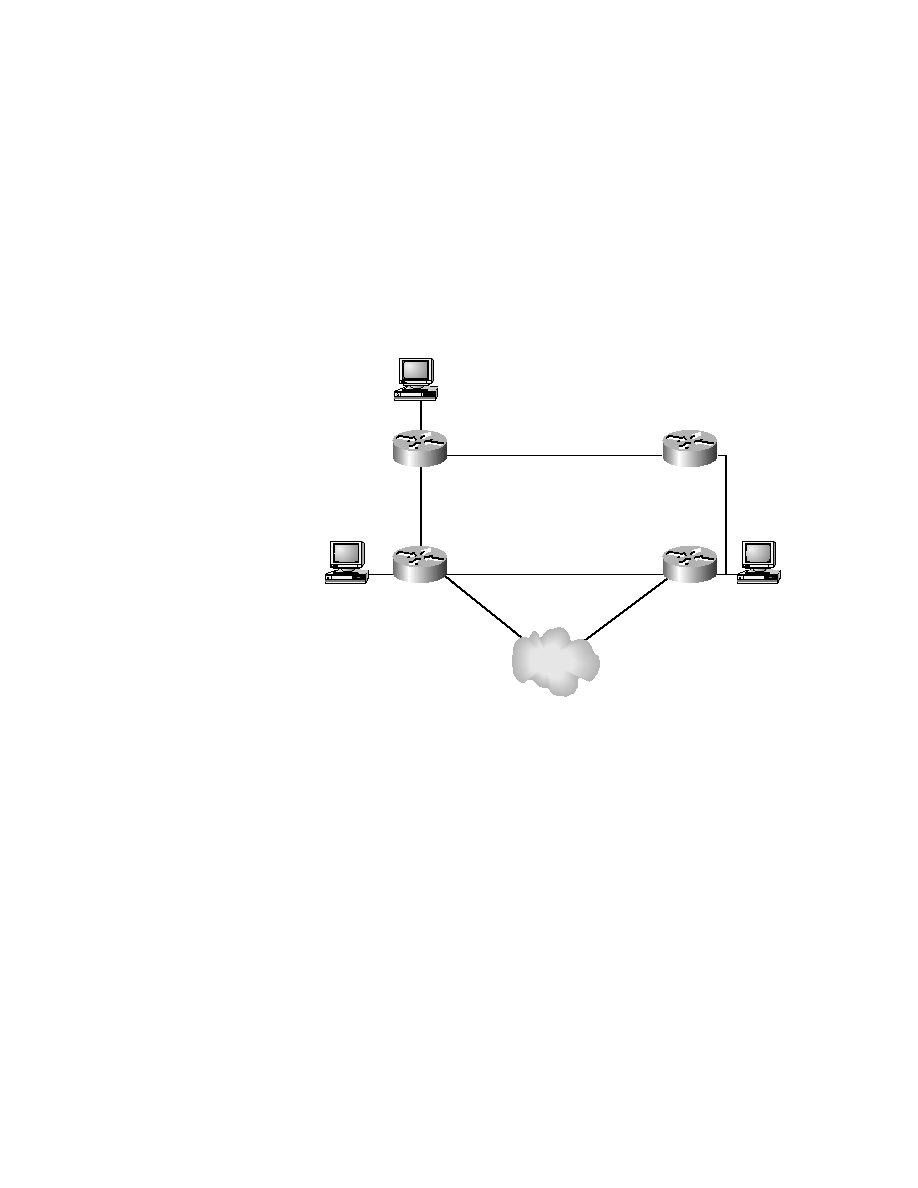
Enhanced Interior Gateway Routing Protocol
217
adjacent routers. Using this information, a composite metric is calculated. The
local router adds its cost to the cost advertised by the adjacent router. The total
cost is the metric. Figure 6.1 shows how cost is used to select the best route
(successor) and the backup route (feasible successor).
F I G U R E 6 . 1
The best-route selection process
Using RouterA as a starting point, we see that there are three different
routes to Host Y. Each link has been assigned a cost. Numbers in bold rep-
resent advertised distances, and numbers in italics represent feasible dis-
tances. Advertised distances are costs that routers advertise to neighbors.
In this example, RouterD and the WAN all have advertised costs that they
send to RouterA. In turn, RouterA has a feasible distance for every router to
which it is connected. The feasible distance is the cost assigned to the link
that connects adjacent routers.
The feasible and advertised costs are added together to provide a total
cost to reach a specific network. Let's calculate the lowest cost for Host X to
get to Host Y. We will use the path from Host X to RouterA to RouterB to
Router C and finally to Host Y for our first path calculation. To calculate the
WAN
CO
Host X
172.7.8.0/24
Host Y
Host
RouterA
RouterB
RouterD
RouterC
Cost 20
Cost 30
172.3.4.4/30
172.1.2.4/30
172.6.7.4/30
172.5.6.4/30
172.10.10.0/24
172.11.12.4/30
Cost 35
Cost 35
Cost 20
Copyright ©2001 SYBEX , Inc., Alameda, CA
www.sybex.com
